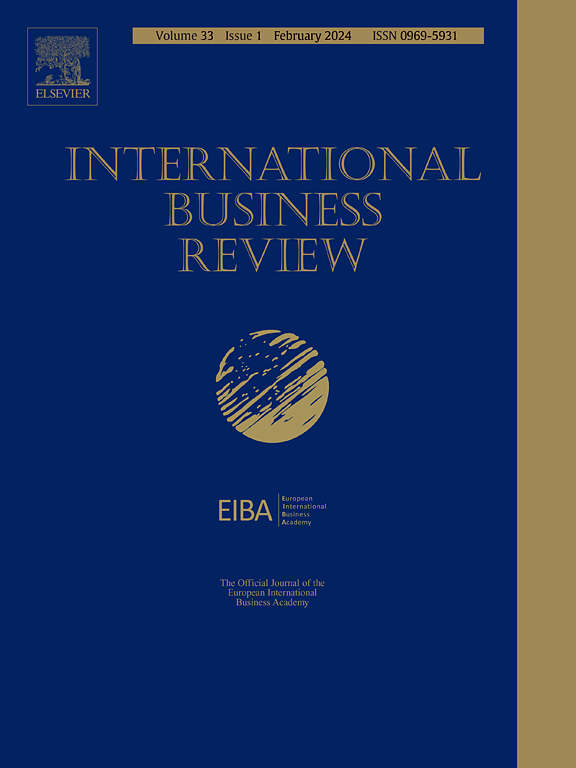Unveiling the influence of host-country religiosity on the completion of cross-border merger and acquisition deals
IF 6.1
1区 管理学
Q1 BUSINESS
引用次数: 0
Abstract
While international business (IB) literature highlights the impact of religious distance on cross-border mergers and acquisitions (CBMAs), limited research has examined how host-country religiosity, defined as the popularity and devoutness of religious beliefs, affects the completion of inward CBMA deals. Using a propensity score matching (PSM) approach and analyzing 4290 CBMA transactions across 105 host countries from 1999 to 2019, we find that higher levels of host-country religiosity reduce the likelihood of CBMA deal completion, independent of religious distance. We further identify increased distrust toward foreign acquirers as a key mediating mechanism. However, a stage-by-stage acquisition strategy, rather than a one-off, full-control approach, mitigates the negative impact of religiosity on deal completion. Our findings contribute to CBMA research by positioning host-country religiosity as a critical determinant of deal outcomes, revealing social trust as a mediating factor, and highlighting the moderating role of acquisition structuring.
揭示东道国宗教信仰对跨国并购交易完成的影响
虽然国际商业(IB)文献强调了宗教距离对跨境并购(CBMA)的影响,但有限的研究考察了东道国的宗教信仰(定义为宗教信仰的受欢迎程度和虔诚程度)如何影响内向CBMA交易的完成。利用倾向得分匹配(PSM)方法分析了1999年至2019年105个东道国的4290笔CBMA交易,我们发现东道国的宗教信仰水平越高,CBMA交易完成的可能性就越低,与宗教距离无关。我们进一步发现,对外国收购者日益增加的不信任是一个关键的调解机制。然而,一个分阶段的收购策略,而不是一次性的、完全控制的方法,可以减轻宗教信仰对交易完成的负面影响。我们的研究结果将东道国的宗教信仰定位为交易结果的关键决定因素,揭示了社会信任是一个中介因素,并强调了收购结构的调节作用,从而为CBMA研究做出了贡献。
本文章由计算机程序翻译,如有差异,请以英文原文为准。
求助全文
约1分钟内获得全文
求助全文
来源期刊

International Business Review
BUSINESS-
CiteScore
14.10
自引率
6.90%
发文量
95
审稿时长
62 days
期刊介绍:
The International Business Review (IBR) stands as a premier international journal within the realm of international business and proudly serves as the official publication of the European International Business Academy (EIBA). This esteemed journal publishes original and insightful papers addressing the theory and practice of international business, encompassing a broad spectrum of topics such as firms' internationalization strategies, cross-border management of operations, and comparative studies of business environments across different countries. In essence, IBR is dedicated to disseminating research that informs the international operations of firms, whether they are SMEs or large MNEs, and guides the actions of policymakers in both home and host countries. The journal warmly welcomes conceptual papers, empirical studies, and review articles, fostering contributions from various disciplines including strategy, finance, management, marketing, economics, HRM, and organizational studies. IBR embraces methodological diversity, with equal openness to papers utilizing quantitative, qualitative, or mixed-method approaches.
 求助内容:
求助内容: 应助结果提醒方式:
应助结果提醒方式:


